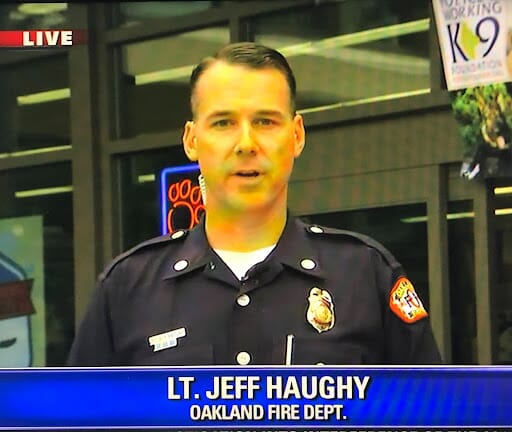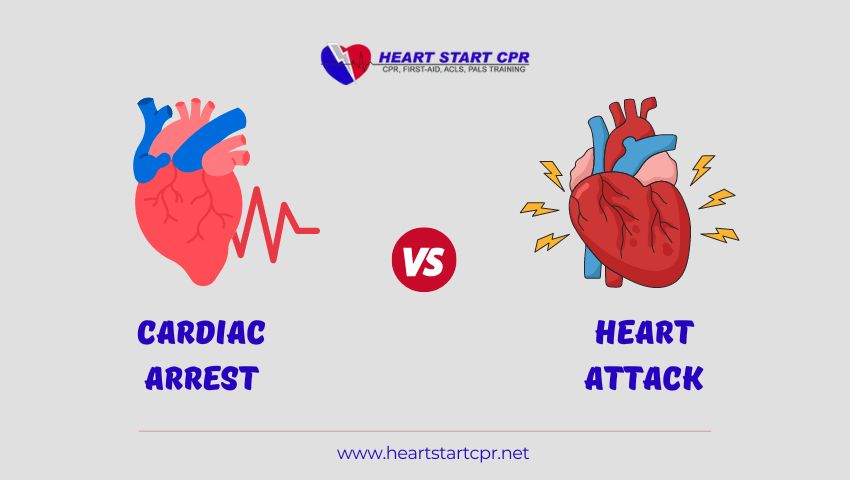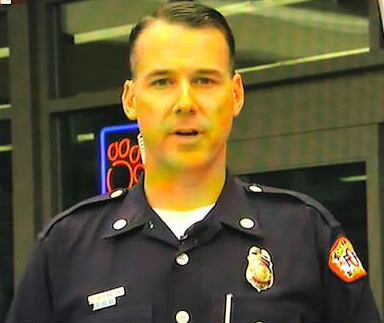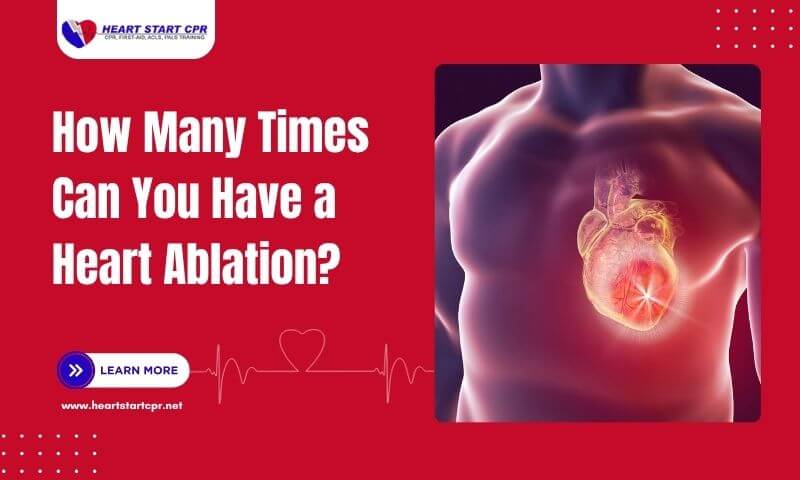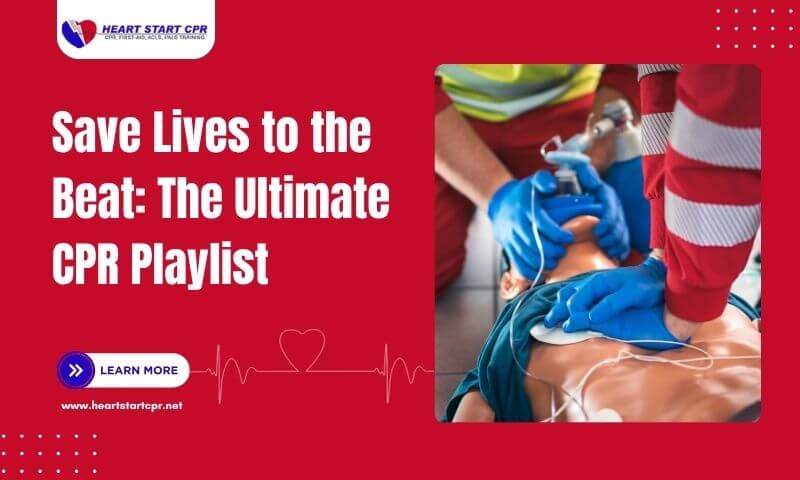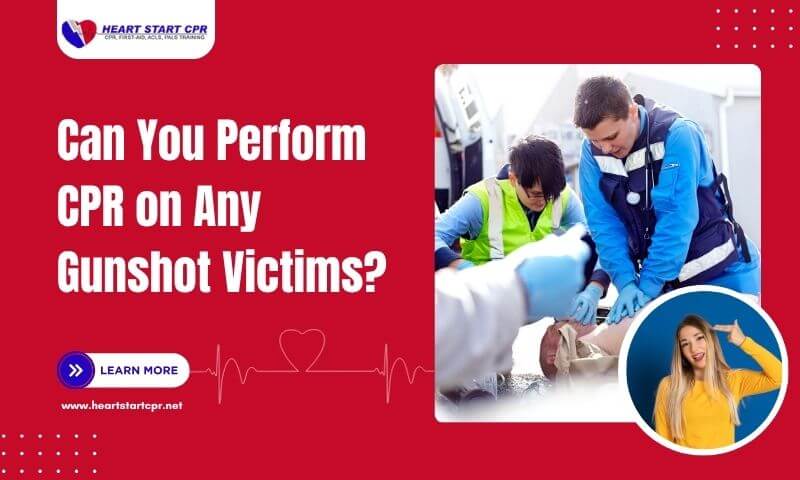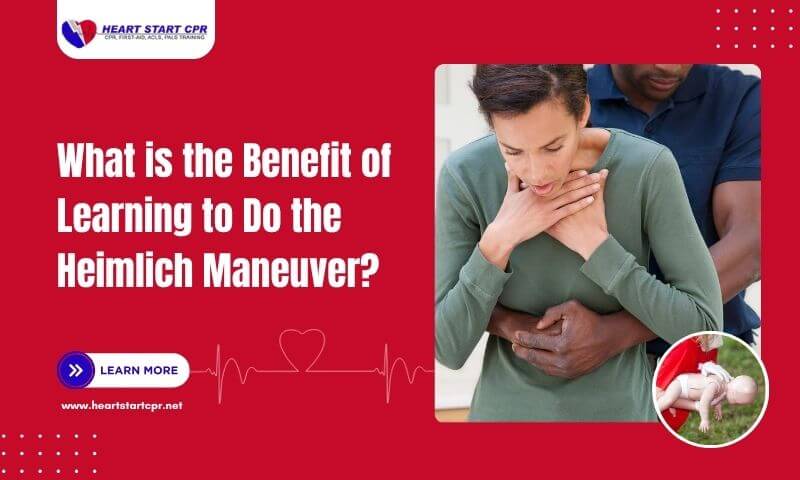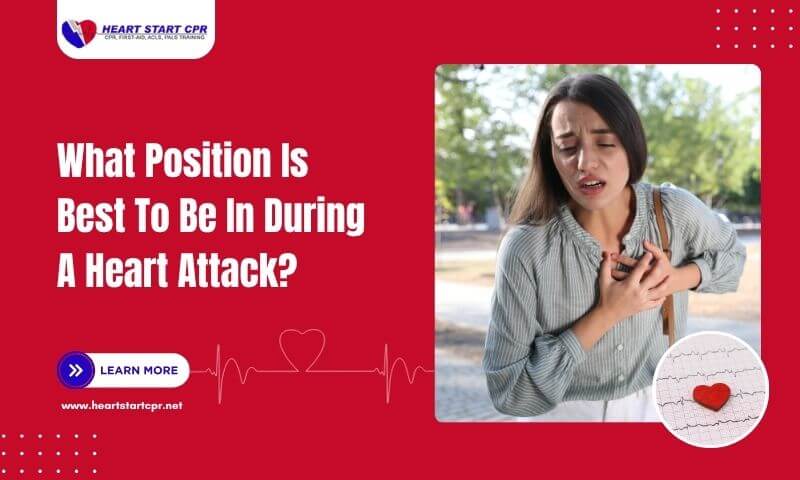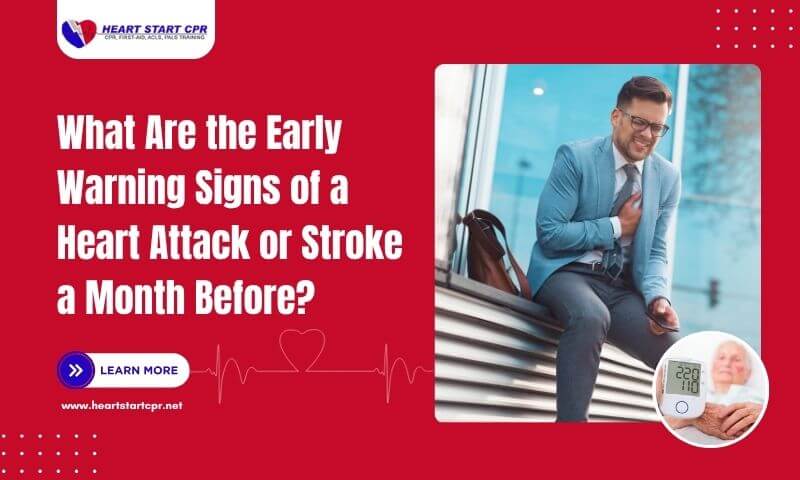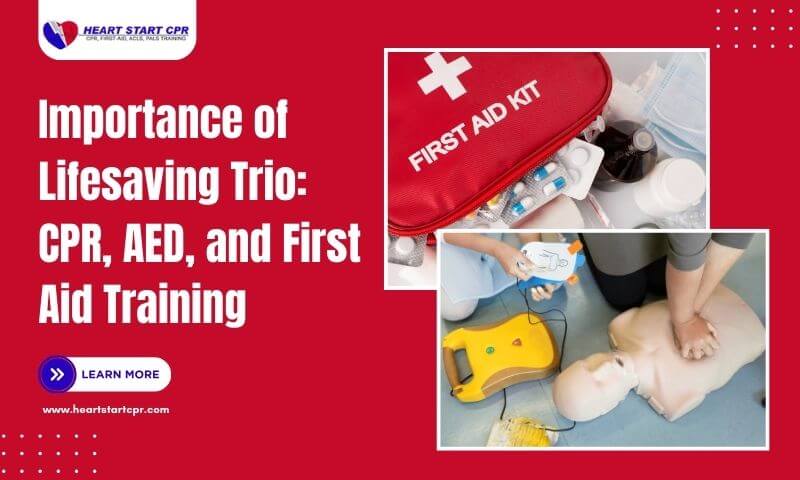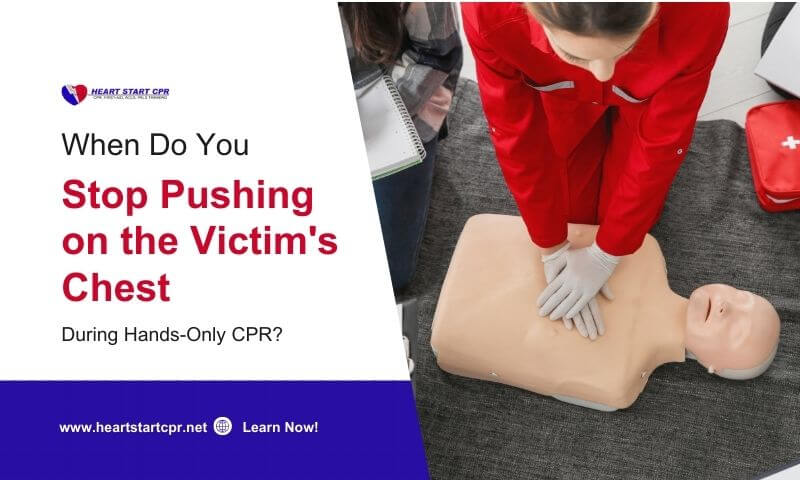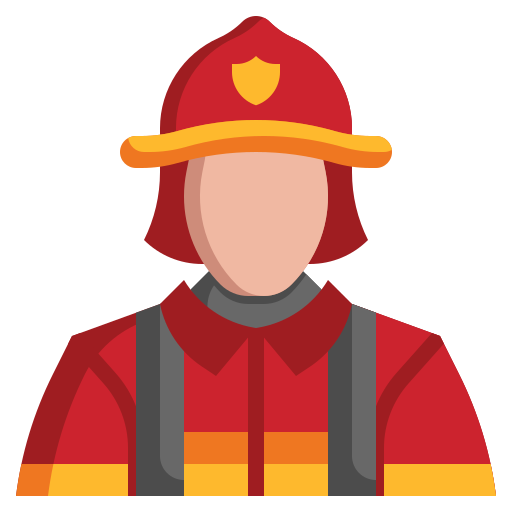Heart attack and sudden cardiac arrest are critical health emergencies related to the heart. Because both conditions are related to the heart, people often use the terms “cardiac arrest” and “heart attack” interchangeably. The reasons that invite the emergency to a victim are different for both conditions. Understanding that these are distinct medical conditions with unique causes, symptoms, and treatments is crucial.
What is Heart Attack?
A heart attack, medically known as Myocardial Infarction (MI), occurs when blood flow to a part of the heart is blocked. The blockage of the blood flow is commonly caused by a blood clot forming on a ruptured plaque within a coronary artery that supplies oxygen and nutrients to the heart. The blockage occurs due to the buildup of cholesterol, fat, plaque, calcium, and other substances that accumulate over time. Smoking, diabetes, obesity, and high blood pressure can contribute to blood clot formation.
Immediately call 911 if you think someone is experiencing a heart attack.
Key Points of Heart Attack :
- Heart attacks often manifest with symptoms such as chest pain or discomfort, shortness of breath, nausea, sweating, and pain or discomfort in other areas of the upper body.
- Unlike SCA, a heart attack may not always result in immediate loss of consciousness or collapse.
- Prompt medical attention is essential to minimize heart muscle damage and improve outcomes for individuals experiencing a heart attack.
What is Sudden Cardiac Arrest (SCA)?
Sudden Cardiac Arrest (SCA) is a condition where sudden cessation of the heart’s electrical activity occurs. During a sudden cardiac arrest, victims feel unconscious due to the malfunction of the heart or irregular heart rhythm (arrhythmia). Due to the disrupted and irregular heartbeats, the heart can’t properly pump oxygenated blood to the brain, lungs, kidneys, and other organs. Because oxygenated blood flow is vital to the body’s organs, a disrupted heartbeat leads to organ failure and, eventually, death of the victim. More vital, out-of-hospital SCD is the cause of 60% of deaths from cardiovascular disease.
Call 911 if you think someone has gone into cardiac arrest.
Key Points of Sudden Cardiac Arrest (SCA):
- SCA can occur without warning and affects people of all ages, regardless of their health status.
- Immediate intervention with cardiopulmonary resuscitation (CPR) and defibrillation using an automated external defibrillator (AED) is crucial to restore normal heart rhythm and increase the chances of survival.
- Risk factors for SCA include coronary artery disease, previous heart attacks, family history of SCA, and certain genetic conditions.
Difference Between Cardiac Arrest and Heart Attack
The below table represents the difference between cardiac arrest and heart attack.
| Aspects | Sudden Cardiac Arrest | Heart Attack |
| Symptoms |
Feeling of a pounding heartbeat. Rapid or irregular heartbeats. Unexplained wheezing. Shortness of breath. Fainting or near fainting. Lightheadedness or dizziness. |
Chest pain or discomfort Shortness of breath Nausea Sweating Pain or discomfort in other areas of the upper body |
| Cause | Arrhythmia (usually ventricular fibrillation) | Blockage in a coronary artery |
| Risk Factors | Heart disease, previous heart attack, family history of sudden cardiac arrest | High blood pressure, high cholesterol, smoking, diabetes, obesity |
| Survival Rate | Low (unless treated immediately with CPR and defibrillation) | Higher, especially with prompt medical treatment |
Related Post: Acute Coronary Syndrome Algorithm
Are Heart Attack and Sudden Cardiac Arrest Linked?
Though both terms are different or medically distinct emergencies, they are linked with each other. A sudden cardiac arrest may occur after a heart attack or during recovery. A study, “Prospective study of sudden cardiac death among women in the United States,” concluded from their research that 94% of women who died suddenly after sudden cardiac arrest had reported at least 1 coronary heart disease risk factor. However, here are some general statistics from the study “Sudden cardiac death: epidemiology and risk factors,” published on 2010 Feb 9:
- Within the first hour after a heart attack, the risk of death due to sudden cardiac arrest is highest, with estimates ranging from 4% to 10%.
- Within the first 30 days after a heart attack, the risk of death due to sudden cardiac arrest is estimated to be 1.4%, according to research.
- Within the first year after a heart attack, the risk of death due to sudden cardiac arrest is estimated to be 1.2%.
Must Read: Hs and Ts of ACLS
What to Do in Case of Sudden Cardiac Arrest?
If you see someone affected by sudden cardiac arrest, start delivering CPR immediately at the ratio of 30:2, meaning 2 rescue breaths after 30 chest compressions. Next, call 911 and seek help. If you are untrained personnel, then provide hands-on CPR. Deliver 100-120 compressions per minute until the arrival of emergency medical service. Use an AED if available; otherwise, continue to deliver high-quality CPR. Getting into action quickly can make the difference between life and death.
Here are some points to prevent sudden cardiac arrest:
- Maintain a heart-healthy lifestyle by eating nutritious foods, exercising regularly, avoiding smoking, and managing stress.
- Have regular medical checkups and screenings to detect and manage heart conditions early.
- Avoid tobacco use completely and control blood pressure and cholesterol levels.
- Learn CPR and how to use an automated external defibrillator (AED) to respond quickly in emergencies.
Must-Read: How Can You Achieve a High Chest Compression Fraction?
What to Do in Case of a Heart Attack?
If you encounter someone experiencing a heart attack, the first step to take is to call 911 or seek emergency medical service (EMS); they will arrive quickly and get immediate appropriate assessment by professionals. Finding out the medical history of the patient and providing aspirin can also help, but do not provide it if you are not sure about the medication.
Here are key points to prevent heart attack:
- Do not smoke or use any form of tobacco to significantly lower the risk of heart attack.
- Engage in regular physical activity, aiming for at least 30 minutes most days of the week.
- Eat a heart-healthy diet rich in fruits, vegetables, whole grains, lean proteins, and low in saturated fats and sodium.
- Maintain a healthy weight and manage blood pressure, cholesterol, and blood sugar levels through lifestyle and medical care if needed.
Learn CPR and Basic Life Support Skills
Sudden cardiac arrest and heart attack both are connected with heart but their causes, symptoms, and urgency are very different. Heart attacks often give warning signs, while sudden cardiac arrest can strike without notice, making immediate action critical. Learning CPR and use of an AED not just only for hralthcare professionals, it’s life-saving skills and anyone can have it. So, equip yourself with knowlwdge today, it makes the difference and increases the chances of survival during emergency.
Be the difference between life and death! Learn CPR and AED skills that can save lives during a heart attack or cardiac emergency. Join Heart Start CPR, an AHA-certified training center, where we offer an online BLS course designed for healthcare professionals and everyday heroes like you. Don’t wait, empower yourself to act when every second counts!

